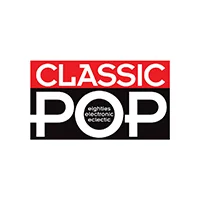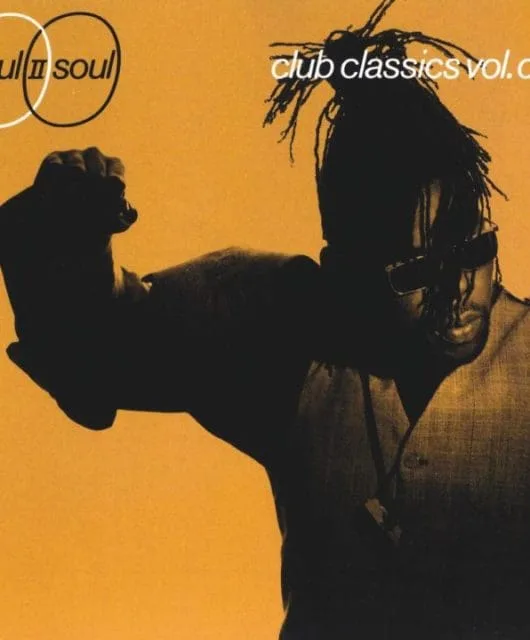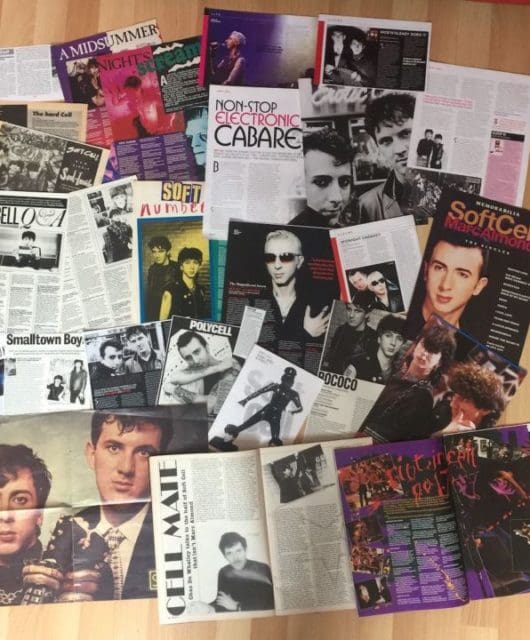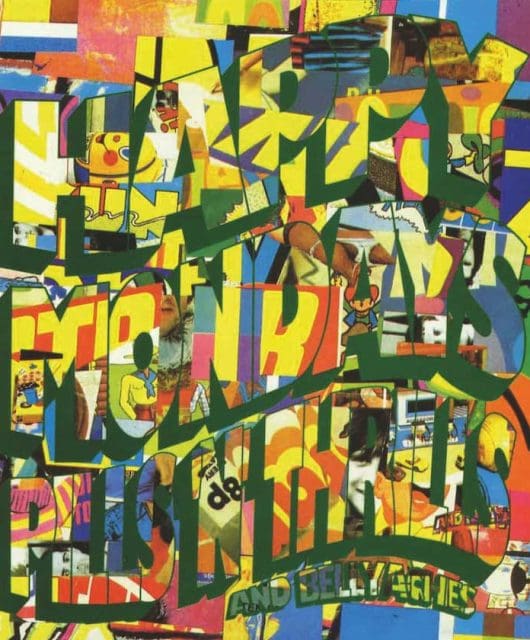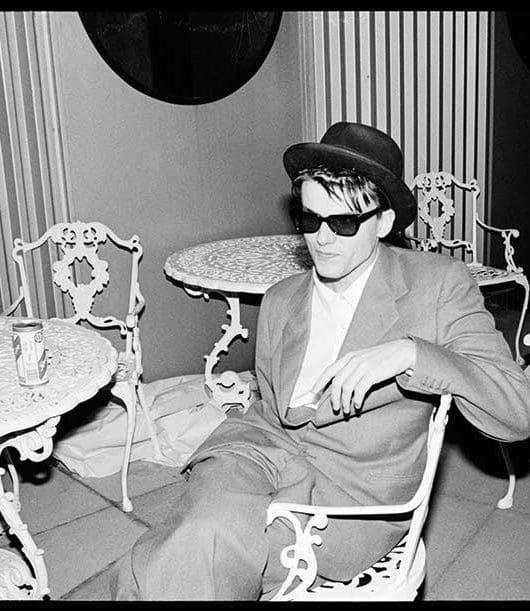Hall & Oates: The self-proclaimed jackasses tell all…
By Classic Pop | July 31, 2019
Back to make your dreams come true with an arena tour, Daryl Hall & John Oates made selling 40 million albums look and sound effortless. So why are they refusing to make a new record? And how close did they come to thinking they should never have worked together at all? The self-proclaimed jackasses tell all…
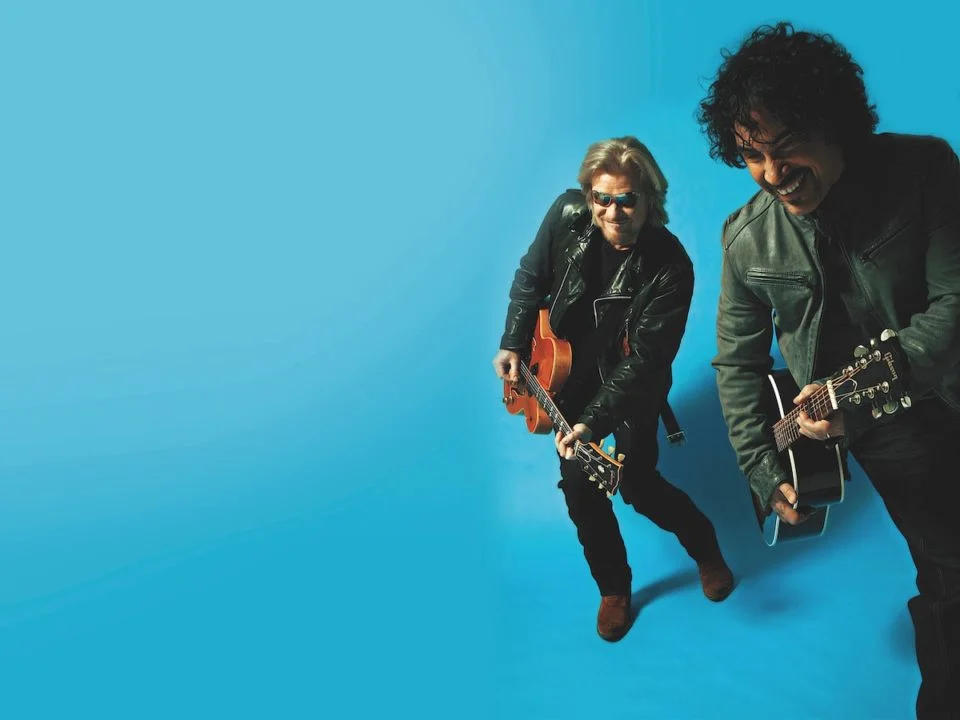
Before Daryl Hall and John Oates go on stage, they spend an hour together with their backing band, telling stories from their golden years. It relaxes everyone, loosening them up so their playing isn’t stiff in front of 10,000 people. It also gives Daryl and John an excuse to hang out.
“A lot of times stories just fall out, that the other one of us has totally forgotten,” laughs Daryl. “John will tell a tale and I’ll go, ‘Oh yeah, that happened! Wow! That reminds me of when we were in Chicago in 1983, when…’ And our band’s either howling with laughter or totally nonplussed, not having a clue what we’re on about. And when we’re howling, we go on stage.” John explains: “It’s a family reunion, in essence.” Would they consider sharing these stories, maybe do An Audience With Daryl Hall & John Oates event? “Oh no,” says John, aghast. “Our stories are much too rude to share with the general public.”
‘In my 20s and 30s, I was a joke’
If that gives the impression Daryl Hall & John Oates took advantage of every excess the 1980s had to offer, it ignores the steely determination that the pair share. You don’t get to create timeless classics like I Can’t Go For That, Maneater and Private Eyes if you’re swimming in hookers and coke. “Our strong work ethic is something that unites us,” notes Daryl.
 “We’re very dedicated to our craft and our creativity. Drugs never really interested me. I like a whisky, but I know when it’s time to stop.” John agrees, saying: “Daryl and I always prioritised music over getting stoned and getting wrecked. Sensationalism isn’t part of what we’re about.” So you weren’t falling out of Studio 54 in New York at 5am? “Oh, we did that, too. It just never got in the way of the music.”
“We’re very dedicated to our craft and our creativity. Drugs never really interested me. I like a whisky, but I know when it’s time to stop.” John agrees, saying: “Daryl and I always prioritised music over getting stoned and getting wrecked. Sensationalism isn’t part of what we’re about.” So you weren’t falling out of Studio 54 in New York at 5am? “Oh, we did that, too. It just never got in the way of the music.”
It’s why they seem genuinely happy to carry on touring together, despite living separate lives off stage. They don’t need the money. As Daryl puts it: “Friends sometimes say, ‘Why don’t you slow down? Ever considered retiring?’ They miss the point – the good part is, it’s fun. I’m devoted to music because it’s fun, it’s sustained me. I’ve fallen out of love with a lot of things and a lot of people, but music is a constant.”
That devotion to music means they’ll enjoy blasting out the hits at next month’s UK tour, even though having to choose a coherent setlist from 18 albums is a nightmare. “There are songs we can’t not play,” admits Daryl. “We’re restricted to some degree by people’s expectations. We’ve tried to drop some hits before, and we got flack from it.” He adopts an angry fan’s voice. ’You didn’t play Private Eyes!’ No, you have to play those songs.” John emphasises it doesn’t feel like a chore. “We’re lucky, because our songs still sound good. I never dread going on stage thinking, ‘Oh God, I’ve got to play Maneater again.’”
That devotion to music is why John is in the King’s Cross office of their tour promoters Kilimanjaro.
Later that day, he’s interviewed on stage as part of AmericanaFest UK to promote his recent blues covers solo album Arkansas in which Oates “has a chance to go back and rediscover the music I made before I met Daryl.”
Airplane Parts
Before he met Daryl, John was a journalism student, which may explain why he’s a great interviewee: he speaks honestly and eloquently about his and Daryl’s success, but knows when to deliver a pithy one-liner, too.
Daryl talks by phone from his home on the border of New York and Connecticut, where he’s lived since 1979. He’s more guarded than his bandmate, but audibly starts to relax about halfway through our half hour. It’s Daryl who admits he’s surprised at how timeless the songs he and John wrote are. “I often think, ‘How did I manage to write those good songs? I was a jackass!’” he laughs. “In my 20s and 30s, I was a joke – but that guy wrote those good songs. And those songs still have meaning to me now.”
Daryl’s father was a singer and his mother a vocal coach, so he was already steeped in music when he met John at Temple University in Philadelphia. “I was born in New York,” recalls John. “My father made airplane parts, and when I was four his firm moved to Philadelphia. We were the only ones in our family to ever leave New York. It was a radical choice, and I don’t know what I’d have done with my life if they hadn’t done it. I’d have never met Daryl.” Not that their first music together was inspirational. John continues: “The first song we wrote together was so bad, we looked at each other and said, ‘We shouldn’t do this. Let’s just hang out.’ It was really bad. Daryl was coming from soul, I was folkier, and our voices didn’t blend at all. It took a while…”

Supporting Bowie
It wasn’t until 1972, five years after meeting, that debut album Whole Oats was released. Even then, their styles hadn’t fully gelled. John recommends the song Lilly (Are You Happy), where “we started to understand the strengths between our vocal ranges”, but it took a huge step before Daryl Hall and John Oates really became Daryl Hall & John Oates: promoting Whole Oats, they supported David Bowie on the Ziggy Stardust tour.
John says: “We went out with our little mandolin and electric piano and seeing Bowie’s show, we thought, ‘Uh-oh… So this is where the bar is set.’ At the time, David wasn’t a superstar, but when he came to America his management wanted him to be perceived as one. So David acted like a superstar. He wouldn’t speak to anyone, and we weren’t even allowed backstage! And to his credit, it worked. His performances were so bizarre and powerful, so big, that David became that superstar. Watching him, Daryl and I realised ‘We have to jack this up a bit.’
‘We obviously had a lot of pressure from everyone to keep the ball rolling’
Second album Abandoned Luncheonette was duly jacked-up, featuring the duo’s first huge hit She’s Gone, which remains Daryl’s favourite song. “She’s Gone is the ultimate Daryl and John song,” he enthuses. “I’m a more prolific songwriter than John, but we wrote She’s Gone together completely. Arif Mardin was our mentor, and his production is perfect, while the arrangement is so good.” Fellow smashes Sara Smile and Rich Girl soon followed. “I enjoyed the 70s more than the 80s,” admits John. “Everything was new. You’d go to a town with no expectations, sleep on people’s floors in cities we’d never played before. Then suddenly you get famous and things change. Thank God there were no cellphones in the 70s because, trust me, I’d be in prison.”
Movie Moments
Just as they were getting the hang of success, the hits dried up with the albums Beauty On A Back Street and Along The Red Ledge flopping. At the start of the 80s, however, the Voices album turned things round again, featuring Kiss On My List, You Make My Dreams and Everytime You Go Away.
 However, it wasn’t until recently that You Make My Dreams became such a favourite. “It got to No.5, and that’s great,” smiles John. “There’s nothing wrong with that, but it didn’t have the impact it does today.” Cult rom-com 500 Days Of Summer breathed fresh life into the song in 2009, when Joseph Gordon-Levitt dances in ecstasy to You Make My Dreams after wooing Zooey Deschanel.
However, it wasn’t until recently that You Make My Dreams became such a favourite. “It got to No.5, and that’s great,” smiles John. “There’s nothing wrong with that, but it didn’t have the impact it does today.” Cult rom-com 500 Days Of Summer breathed fresh life into the song in 2009, when Joseph Gordon-Levitt dances in ecstasy to You Make My Dreams after wooing Zooey Deschanel.
“It’s one of the best movie moments I’ve ever seen,” says John. “I’d heard about it being in the film, but figured it was in the background like usual. But then my wife, son and I happened to be near a cinema where it was showing one afternoon. It was virtually empty, but at the end of the scene this group of girls down the front stood up and started clapping. I thought, ‘Hmm, this doesn’t happen very often!’ You Make My Dreams connects with this younger generation. It’s simple, direct and has a great groove.” Daryl is more ambivalent about its fresh impact, laughing: “It’s crazy how You Make My Dreams has infected the world. And yes, I mean ‘infected’ rather than ‘affected’. There’s something so positive about that song that it’s everywhere. I wish I had 10 of them as opposed to just that one song, but I don’t know how I’d ever write another one like it.”
It’s that bafflement at how to recreate You Make My Dreams that points to how varied Hall & Oates’ hits are. “All our hits are distinctly different,” reasons John. “You don’t hear Sara Smile 2 or Maneater 2. None of them sound anything like each other, yet we always sound like ourselves.
“We obviously had a lot of pressure from everyone to keep the ball rolling, but we didn’t know how, other than to give each song on an album the same amount of attention. The songs that rose to the top and became hits weren’t because of what we did to them.”
The hits continued to roll in until, in 1985, Daryl Hall & John Oates were the headline act of the US leg of Live Aid, at their hometown venue John F Kennedy Stadium in Philadelphia. Two months earlier, they’d been joined by David Ruffin and Eddie Kendricks of childhood heroes The Temptations to reopen classic soul venue the Apollo Theater in New York. “We had to take a step back after that,” says John. “Once you’ve done that and you’ve had platinum album after platinum album, the only thing that can happen is to start going downhill.”
Don’t Change
Having made at least one album a year since 1972, from 1986 the release and touring schedule slowed right down. By the grunge era of the early 90s, Daryl Hall & John Oates were roughly as fashionable as smallpox. “That time was anti-melodic and anti-chordal and we didn’t fit into it,” shrugs John. “Neither of us wanted to try to conform our sound into what was going on. It was time for me to dip out of the music scene anyway. I got divorced, moved to Colorado, got remarried, had a kid, bought a house, went hiking up mountains and skiing… all those things I’d never had time for.”
Daryl, meanwhile, got into architecture and restoring old houses. He also became the Jools Holland of the US, 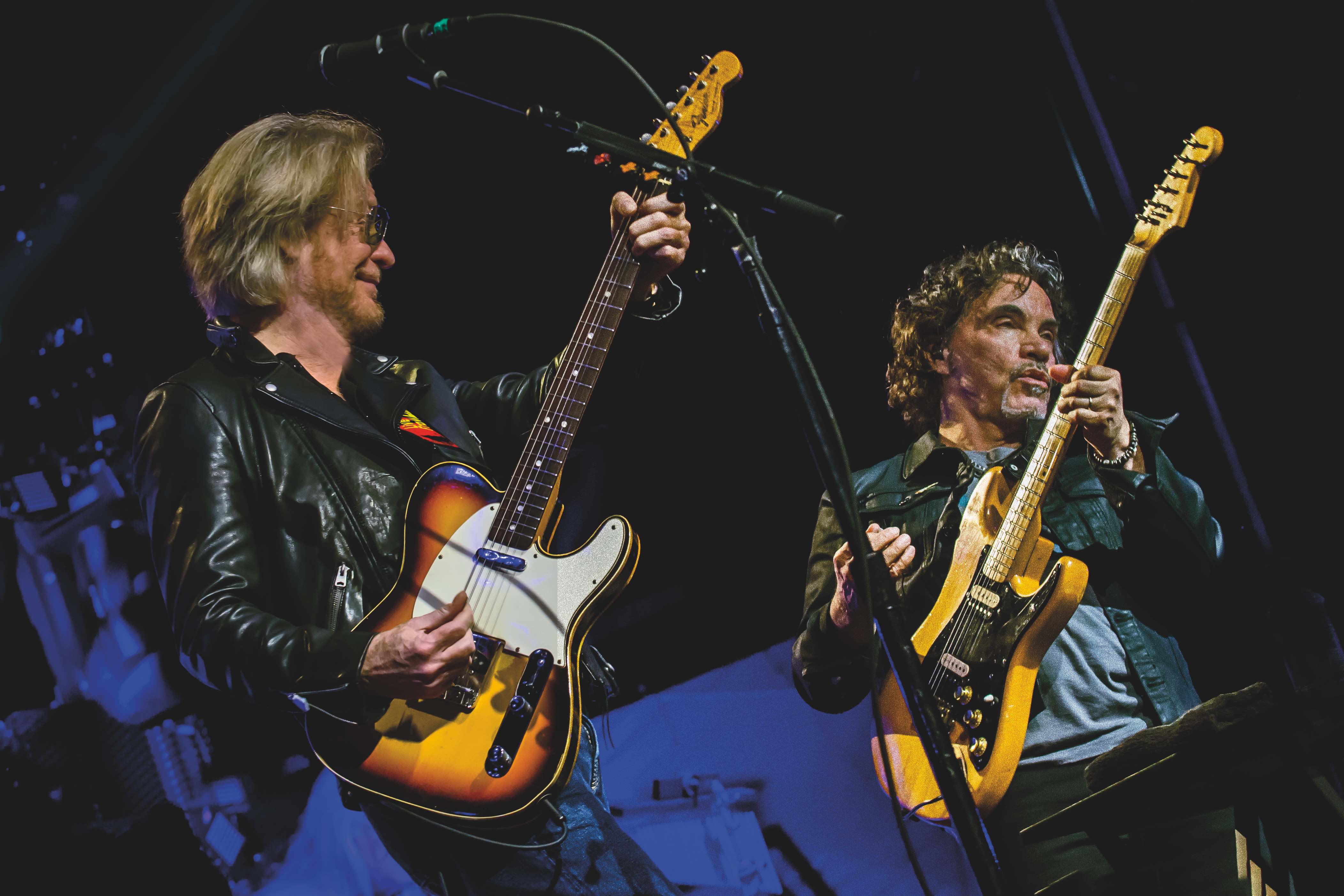 hosting his own music TV show Live From Daryl’s House, which began online before graduating to MTV. “When artists like Smokey Robinson or The Blind Boys Of Alabama are on, I become a total fanboy,” he says. “I never know what’s going to happen, and I love that spontaneity. I might be really excited to have a favourite artist on, only to find they’re stiff and it’s like pulling teeth to get them to play. But then I’ve also had on singers I hardly know anything about, like Allen Stone, who turn out to be my absolute favourites.”
hosting his own music TV show Live From Daryl’s House, which began online before graduating to MTV. “When artists like Smokey Robinson or The Blind Boys Of Alabama are on, I become a total fanboy,” he says. “I never know what’s going to happen, and I love that spontaneity. I might be really excited to have a favourite artist on, only to find they’re stiff and it’s like pulling teeth to get them to play. But then I’ve also had on singers I hardly know anything about, like Allen Stone, who turn out to be my absolute favourites.”
Around the start of the new millennium, Daryl and John’s music began to be noticed again. Arcade Fire and The Killers proclaimed themselves fans while Kanye West sampled Grounds For Separation. “It was when boybands started up that we thought we could come back,” notes John. “We thought, ‘Hey, people are making pop music again!’”
Although the touring is back on in earnest, it’s been 13 years since their last album together, Home For Christmas. Their opinions differ slightly as to whether album 19 is on the cards. “I think we’ve said everything we’ve wanted to say,” admits John. “Our passions lie in our individual projects now. We’ve accepted we should go out and represent this great body of work we’ve made already. We’re proud of what we’ve done, and our shows are ongoing. I think that’s OK.”
‘We’re confident people. We understand the talent at our disposal’
As for Daryl? “We don’t need to make a 19th record. But we could make the occasional one-off song and release that. We’ll maybe do as much of that as we can.” Does Daryl ever find himself writing a song and thinking it’d work even better with John on? “No. I can think of a few of our songs that I should have saved for myself!”
Outside of touring, the pair rarely see each other. But they do keep in touch – partly through their own little book club. “We trade around books a lot,” says Daryl. “We both read police procedural novels and history. Books are what we usually give each other for Christmas – what else are we going to give? We’ve kinda got most stuff we want…”
John went one further, publishing his autobiography Change Of Seasons in 2017 and plans to write a book about his love of Nashville after moving there a decade ago. “I admired John’s book and I’m a bookworm,” says Daryl. “But I won’t do my own book. I’d rather be personal in my songs.”
The touring will go on indefinitely – and it’ll stick to the hits. “I have suggested the idea a few times of doing a Daryl & John deep cuts tour of our favourite songs that weren’t hits,” says Daryl. “I always get shot down and told, ‘No, they want to hear the big songs.’ We’re out there to give people what they want. Daryl Hall & John Oates? We’re there for a reason.”
John Earls
